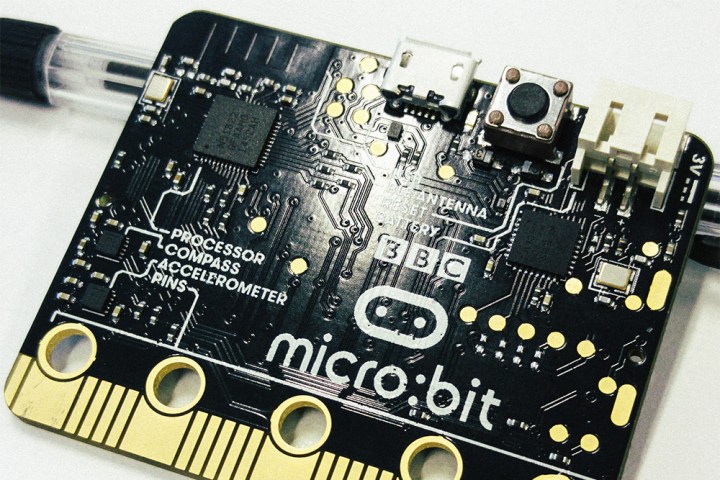
The BBC Micro:Bit is a credit-card-sized system that has proven hugely popular since its release, with more than 13 million visits to the official website already logged following its (delayed) launch earlier this year. Its code simulator has been used 10 million times and more than 2 million projects have been loaded onto individual Micro:Bits, too.
Part of this success comes down to a program to encourage pupils at British schools to learn programming and investigate electronics and hacking, by giving a Micro:Bit to every year 7 pupil (6th grade), many of whom have gone on to develop fun little projects with the mini system (thanks Engadget).
Related: At long last, pre-orders for BBC Micro:Bit now open to the public
It’s not all been charitable, though. The Micro:Bit has also been available for purchase by the general public and has now generated enough money to launch an official spin-off from the BBC: the Micro:Bit Educational Foundation.
Moving forward, the venture will use continued sales to support the seven-person BBC spin-off company and will even expand over the coming months. Micro:Bit will also begin to be sold in Europe, with new Norwegian and Dutch versions of its coding tools to encourage uptake in those particular regions.
In 2017, the foundation hopes to expand further into U.S. and Chinese markets, offering upgraded versions of the hardware as it does so, much in the same way that the Raspberry Pi has been improved and upgraded over several versions.
Are there any projects which you think the Micro:Bit would be particularly well suited for?




